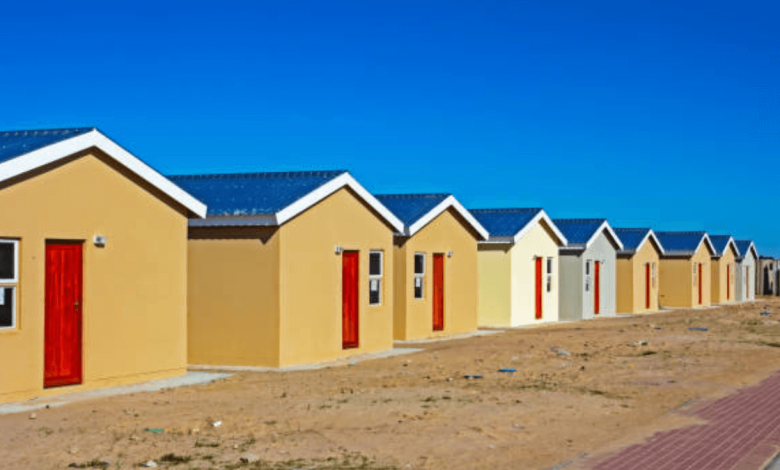Eligibility Requirements for RDP Housing in Gauteng: What You Need to Know

The Reconstruction and Development Programme (RDP) housing initiative in South Africa addresses the country’s housing backlog. It focuses on helping low-income individuals and families gain access to decent homes.

As Gauteng is the economic hub of South Africa, it attracts many applicants for RDP houses. The process of qualifying for and obtaining an RDP house is structured and regulated. Prospective applicants need to understand the eligibility requirements, application process, and conditions surrounding RDP housing.
This guide explains everything you need to know about qualifying for RDP housing in Gauteng, including eligibility criteria, necessary documents, and the application process.
What is RDP Housing?
RDP housing, launched in 1994, forms part of the South African government’s efforts to provide homes for previously disadvantaged communities. The program offers low-income households government-subsidized homes at no or very low cost.
These homes are simple, basic structures built using standard designs and materials. Over time, many beneficiaries have improved or extended their homes, allowed under certain conditions. The main goal is to provide safe, secure, and affordable housing for all South Africans.
Eligibility Requirements for RDP Housing in Gauteng
To qualify for RDP housing in Gauteng, applicants must meet specific criteria. These criteria ensure that the program serves low-income individuals and families who need government assistance the most.
- South African Citizenship or Permanent Residency
Applicants must be South African citizens or permanent residents with valid permits. This requirement ensures the program benefits individuals with a long-term stake in the country. - Age Requirement
Applicants must be at least 21 years old. This ensures that applicants are legally able to sign housing contracts and are financially independent or able to contribute to household income. - Income Limitations
The household income must not exceed R3,500 per month. This threshold includes all individuals living in the household, including spouses, children (if they are working), or other dependents contributing to household finances. - First-Time Homeowner Status
The applicant must not have previously owned property or benefited from government housing subsidies. This condition ensures that RDP housing benefits those without prior access to homeownership. - Marital Status and Family Composition
- Married Applicants: Both spouses are considered part of the household, and their combined income is considered in the application.
- Single Applicants with Dependants: Single applicants with dependents can apply, provided they meet income and other criteria.
- Single Military Veterans or Aged Persons: Single military veterans or elderly individuals without dependents also qualify.
- Legal Capability to Enter into a Contract
Applicants must be mentally competent and able to sign a legal contract. This is essential since successful applicants will enter into a formal agreement with the government.
Learn More: Are You on the National Housing Needs Register? Check with Your ID in 3 Easy Steps
Required Documents for RDP Housing Applications
When applying for RDP housing in Gauteng, applicants must provide the following documents to verify their eligibility:
- Identity Documents
Applicants must submit their South African ID or a valid permanent resident permit. - Birth Certificates of Dependents
Applicants with children or dependents must provide their birth certificates to verify family composition. - Proof of Income
Applicants must submit salary slips or other proof of income, such as bank statements, to confirm they meet the income requirements. - Proof of Residence
Applicants may need to provide a utility bill or a letter from the local municipality to confirm their residence.
Application Process for RDP Housing in Gauteng
Once you meet the eligibility requirements and have gathered the necessary documents, the next step is to submit your application.
- Submit Your Application
Applications for RDP housing in Gauteng are submitted through the Provincial Department of Human Settlements or local municipal offices. These forms are free, and no application fees are required. - Waiting List
After submission, your application will be placed on a municipal housing waiting list. The waiting period can be long, especially in urban areas like Johannesburg and Pretoria, where demand is high. - Allocation of Housing
Housing is allocated based on availability and prioritization criteria. The government prioritizes those with urgent housing needs, such as those living in informal settlements or overcrowded conditions. - House Allocation and Occupation
If you are allocated a house, the municipality or Department of Human Settlements will contact you. After accepting the offer and completing the necessary paperwork, you will receive your property. However, you must comply with the contract, including not selling or renting the house for the first eight years.
Related: Joburg South’s R27 Billion Mega City Project Begins
Important Considerations and Additional Notes
- Selling or Renting Out RDP Housing
It is illegal to sell or rent an RDP house within the first eight years of ownership. Violating this rule can lead to the forfeiture of the house and legal penalties. - Renovations and Improvements
Beneficiaries wishing to renovate their homes must obtain permission from the local municipality. Unauthorized renovations can result in penalties, including fines or loss of the house. - RDP Housing Maintenance
Homeowners are responsible for maintaining their homes. The government covers the initial construction cost, but long-term upkeep is the homeowner’s responsibility.
The RDP housing initiative aims to address South Africa’s housing backlog by providing decent homes to those in need. Understanding the eligibility requirements and application process is essential for successfully applying. Although waiting lists can be long, following the correct procedures increases your chances of securing a house.
By adhering to the program’s guidelines and being patient, you can take a significant step toward homeownership. The RDP program remains a vital tool in the government’s efforts to ensure that every South African citizen has access to safe, secure, and affordable housing.




